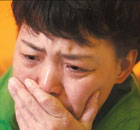Global Biz
Global factory output picks up steam in December
(Agencies)
Updated: 2010-01-05 11:31
 |
Large Medium Small |
LONDON/BEIJING: Chinese manufacturing activity expanded at the fastest rate on record in December and the recovery among European manufacturers, led by Britain, gathered pace, according to key surveys on Monday.
Major economies have been mired in a deep global recession but stimulus-fuelled economies in Asia, notably China, have been recovering rapidly since around the middle of last year, leading the worldwide rebound from the global crisis.
In China, the HSBC Purchasing Managers' Index rose to 56.1 from 55.7 a month earlier to reach its highest level since the survey began in April 2004.
The CIPS/Markit PMI for the UK, still stuck in recession, hit a 25-month high of 54.1 last month, smashing forecasts for a rise to 52.0, while the 16-nation euro zone saw output expand at its fastest pace in 27 months.
| ||||
"It supports other evidence that the economy is continuing to expand but the recovery is going to be relatively slow and we are not going to see anything particularly dramatic," said Ben May, economist at consultancy Capital Economics.
A reading above 50 indicates manufacturing activity is expanding, while a level below 50 suggests contraction.
The euro zone broke out of recession in the third quarter of last year, although how sustainable the recovery is remains in doubt given still falling investment and high unemployment.
Manufacturing activity hit a seven-month peak in India last month and it also rose in South Korea, where factories added the most jobs in nearly two years, PMIs showed on Monday.
"China's manufacturing PMI will likely remain above 50 and even accelerate in coming months, as exports are improving, private investment is coming back and public investment remains robust," Ting Lu, an economist at Bank of America-Merrill Lynch said in a research note.
Growth in Japan's manufacturing activity picked up for the first time in three months in December and upbeat export orders from China are likely to continue lifting production, a Nomura/JMMA survey showed last week.
By contrast, Russia's PMI fell to 48.8, the lowest in five months, from 49.1 in November. In the last 17 months, the index has only once risen above 50, which was in September 2009.
BACKS RATE OUTLOOK
Output in India and South Korea gained momentum, underlining expectations that they will be the first Group of 20 nations after Australia to raise interest rates following the crisis.
The Bank of Korea reviews monetary policy on Friday, while the next scheduled meeting of the Reserve Bank of India is on January 29.
"The Bank of Korea can afford to stay on hold this week, but we stick by our call that interest rates will go up before the end of this quarter, mainly to ease worries over household lending growth and asset bubbles," said Frederic Neumann, senior Asia economist at HSBC.
The Bank of England and European Central Bank are both seen holding interest rates at record lows for most of the year as their economies continue to struggle.
"The euro zone manufacturing PMI survey suggests that the recovery is losing momentum, with economic growth starting to level off at moderate rates. This is in line with our low-speed, jobless recovery scenario for the euro zone economy in which the ECB withdraws policy accommodation only very gradually," said Nick Kounis at Fortis Bank.
The Chinese leadership has pledged greater policy flexibility this year, which the market has interpreted as a pledge to gradually shift to a tightening bias after taking only small steps until now to wind down ultra-loose monetary policy.










